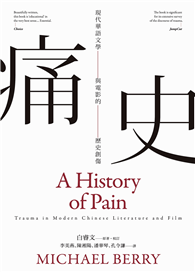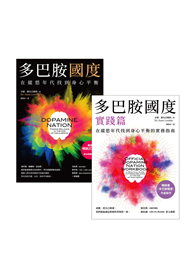當今心理學界最閃耀的學者,
教我們如何定義,進而實踐心理豐富度,
活出更豐盛、更圓滿的美好人生。
究竟何謂「美好的人生」?心理學家們展開辯論,各自提出研究報告。1984年,艾德‧迪安納(Ed Diener)發表了一篇聚焦在「快樂」(happiness)的論文;五年後,他的競爭對手提出聚焦於「目的和意義」(purpose and meaning)的模型。如今,心理學界受矚目的學者大石茂弘(Shigehiro Oishi)則提出另一種論點,關注長期被眾人忽視的第三個維度——「心理豐盛」(psychological richness)。
對許多人來說,美好人生是走在廣受眾人認可的道路,維持穩定、舒適的生活。作者以自己的父親為例,他的父親一直生活在日本的山間小鎮,總是把家人的需求置於自己之上。世代以來,多數人也選擇走在類似的穩健道路上,但大石懷疑,這是否會是通往美好人生的最佳路徑?
大石獲獎的研究報告指出,一個人的好奇心、探索力、和經驗的多寡決定了心裡豐盛度,只要勇於接受挑戰、樂於學習新事物,無論是正面或負面的經驗,都能讓人成長,進而活出美好人生!生動的文筆和豐富的例證,為我們指出一條通往更加圓滿、少有遺憾的人生新道路。(文/博客來編譯)
好評推薦:
「有些人渴望在人生中得到的,不僅僅是幸福,而是擁抱生命的各種樣貌與可能。他們希望自己的人生如同一個偉大的故事、一場偉大的旅程,充滿曲折起伏,讓人得以在過程中見證正不同類型的生命之美。過往的心理學鮮少照顧到這群人,他們大多只能從浪漫的文學作品中尋得指引和知音,如今這本書將提供第三維度的全新見解來詮釋美好人生,包括如何找到可能最合適你的人生方向。」——紐約大學商學院教授、《失控的焦慮世代》(The Anxious Generation)作者強納森‧海德特(Jonathan Haidt)
「每週都有關於幸福和意義的新書上市,以致於很難有一本書能從中脫穎而出。然而,大石茂弘做到了!身為心理學領域最閃亮的明星之一,他動人的文筆、原創的觀點,引人深思。這本書將改變你對美好人生的看法。」——《強大內心的自我對話習慣》(Chatter)作者伊森‧克洛斯(Ethan Kross)
A NEXT BIG IDEA CLUB MUST-READ BOOK - From one of our foremost psychologists, a trailblazing book that turns the idea of a good life on its head and urges us to embrace the transformative power of variety and experience
For many people, a good life is a stable life, a comfortable life that follows a well-trodden path. This is the case for Shigehiro Oishi’s father, who has lived in a small mountain town in Japan for his entire life, putting his family’s needs above his own, like his father and grandfather before him. But is a happy life, or even a meaningful life, the only path to a good life?
In Life in Three Dimensions, Shige Oishi enters into a debate that has animated psychology since 1984, when Ed Diener (Oishi’s mentor) published a paper that launched happiness studies. A rival followed in 1989 with a model of a good life that focused on purpose and meaning instead. In recent years, Shige Oishi’s award-winning work has proposed a third dimension to a good life: psychological richness, a concept that prioritizes curiosity, exploration, and a variety of experiences that help us grow as people.
Life in Three Dimensions explores the shortcomings of happiness and meaning as guides to a good life, pointing to complacency and regret as a "happiness trap" and narrowness and misplaced loyalty as a "meaning trap." Psychological richness, Oishi proposes, balances the other two, offering insight and growth spurred by embracing uncertainty and challenges.
In a lively style, drawing on a generation of psychological studies and on examples from famous people, books and film, Oishi introduces a new path to a fuller, more satisfying life with fewer regrets.












